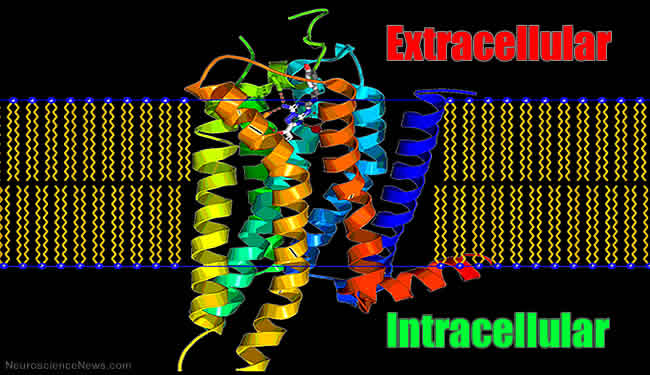A receptor recently discovered to control the movement of immune cells across the blood-brain barrier may hold the key to treating multiple sclerosis (MS), a neuroinflammatory disease of the central nervous system.
In multiple sclerosis, immune cells enter the central nervous system and attack and destroy the myelin sheath surrounding the axons of nerve cells in the brain and spinal cord, resulting in blindness, paralysis, incontinence and many more symptoms.
The research appears in the Journal of Immunology, and reveals how the A2A adenosine receptor expressed on blood-brain barrier cells acts as a gateway, allowing immune cells to enter the brain, where they can cause havoc in people with MS.
The blood-brain barrier is composed of specialized cells that selectively prevent substances from passing from the bloodstream into the brain.
“We found that expression of this A2A adenosine receptor is important for regulating the entry of cells into the brain; whereby its activation allows immune cell entry and its inhibition blocks entry,” said Margaret Bynoe, associate professor of immunology at Cornell University’s College of Veterinary Medicine and senior author of the paper, which was also selected as a featured publication in the “In This Issue” section of the journal, where the top 10 percent of manuscripts are featured. Jeffrey Mills, a postdoctoral associate in Bynoe’s lab, is the paper’s lead author.

In this study, the researchers used mice where the A2A adenosine receptor was knocked out and then infused those mice with normal immune cells from wild-type mice expressing the A2A adenosine receptor. This produced chimeric mice expressing the A2A receptor on immune cells, but not on blood-brain barrier cells. Without A2A receptor on blood-brain barrier cells, the normal immune cells failed to effectively infiltrate the central nervous system, and thus, these mice were protected and developed less severe MS-like disease. “The absence of the A2A receptor on blood-brain barrier cells is similar to the effect of pharmacologically blocking the receptor with antagonists [drugs], which also protected mice from MS-like disease.
“The implications of these findings are that, potentially, modulation of this receptor can be beneficial for future treatment of MS,” Bynoe said.
Notes about this Multiple Sclerosis research and article
The study was funded by the National Institutes of Health. For more information about Bynoe’s research, visit here.
Contact: Joe Schwartz – Cornell University
Source: Cornell University press release
Image Source: NeuroscienceNews.com image adapted from an image available in the public domain at Wikimedia Commons. More images and a nice viewer to be used for A2A adenosine receptors are available at the Protein Data Bank.
Original Research: Abstract for “A2A Adenosine Receptor Signaling in Lymphocytes and the Central Nervous System Regulates Inflammation during Experimental Autoimmune Encephalomyelitis” by Jeffrey H. Mills, Do-Geun Kim, Antje Krenz, Jiang-Fan Chen and Margaret S. Bynoe in The Journal of Immunology June 1, 2012 vol. 188 no. 11 5713-5722 doi: 10.4049/jimmunol.1200545








